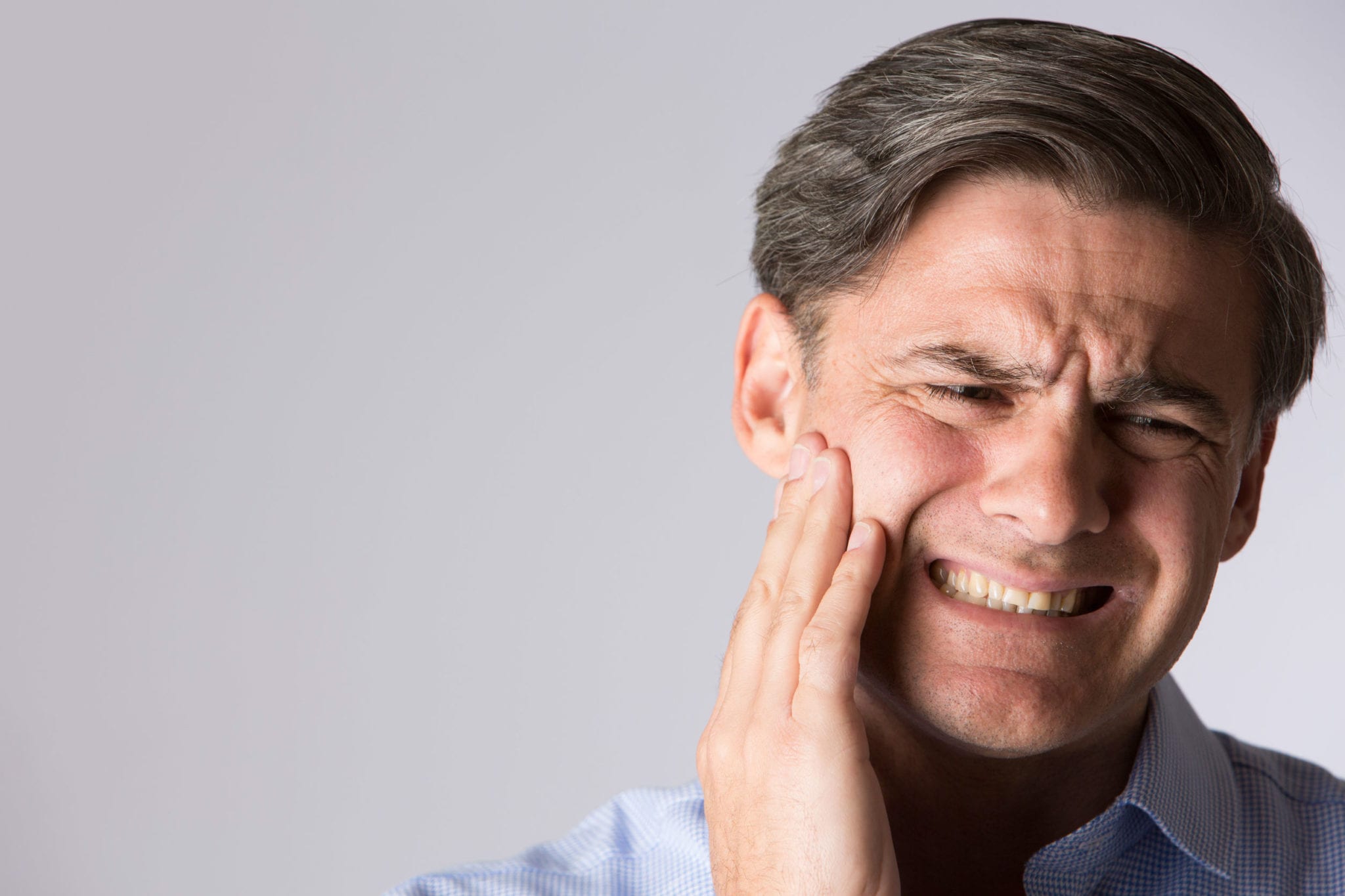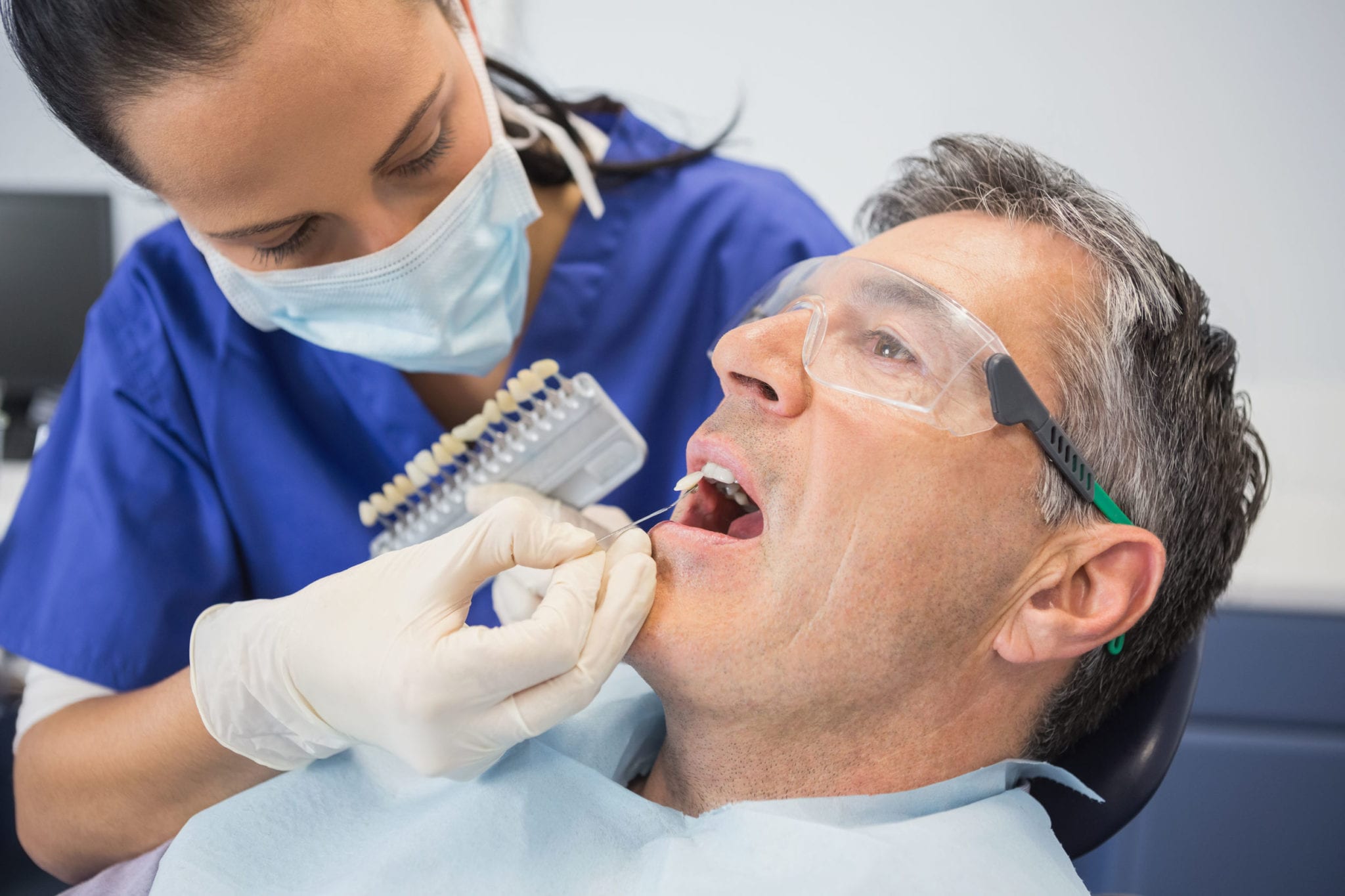
There are all kinds of reasons why someone’s teeth might hurt, but generally, the aches and pains that finally send you running to the dentist typically fall into three categories: actual pain occurring in the teeth themselves, issues with the gum tissue surrounding your teeth, and a handful of conditions that seem to be linked to your teeth, but originate from something else.
In this post, we’re going to look at each of these categories of tooth pain, as well as the specific issues that can cause that type of pain.
Actual Tooth Pain
Every tooth is divided into three main layers, the outermost layer being the enamel. While this layer is composed of the hardest, most mineralized tissue in the entire body, unless properly cared for, it is still susceptible to decay.
The material directly under your enamel is called dentin. Similar to marrow, dentin is comprised of calcified tubes and covers the innermost layer of the tooth – the pulp, or soft tissue. This is where the nerves and blood vessels of a tooth live, and when decay reaches this area, you usually feel pain.
Here are a few ways decay and exposure can leave you with a toothache:
- The leading cause of tooth pain, you simply have an untreated cavity which has caused pulpitis, or inflammation of a tooth’s pulp.
- The thinning of your enamel, which is typically associated with hot and cold sensitivity.
- You fractured or impacted a tooth. When you have a cracked or broken tooth, pain can result from biting down on it.
- Old dental work – fillings that are very old, cracked, or that have fallen out completely can expose inner layers of teeth, increasing sensitivity to the elements and causing pain if and when food gets pushed into the area.
- New dental work – any sensitivity longer than a few weeks or sharp pain when biting down in the area work was done may be a sign you need an adjustment.
Issues with Your Gums
Working in conjunction with a few other ligaments and membranes, your gums are responsible for keeping your teeth in line, acting as a shock absorber, and anchoring the teeth to their sockets in the bone.
Not taking care of them can mean losing those teeth. Discomfort signaling you’re somewhere on the path to tooth loss could be caused by:
- An abscess along the gum line, which can occur when particles of food are jammed into your gums, causing inflammation. Lingering food and debris decays and breeds infection there.
- Sensitive teeth can also result from enamel at the gum line wearing away, or “receding.”
- Infected gums are usually diagnosed as one of two conditions: Gingivitis, which causes red, swollen gums, or a more serious but preventable condition, periodontal disease, which occurs when germs or bacteria enter the teeth or gum area and multiply to a point where the body cannot fight off the bad bacteria.
- Impacted teeth (usually your wisdom teeth in the very back) that don’t break through the gumline but stay lodged in gum tissue or bone.
Beyond the Teeth & Gums
There are several other conditions unrelated to the teeth and gums that may present as tooth pain, as well.
- Grinding or clenching your teeth can obviously cause tooth pain and even lead to broken teeth, but other symptoms are usually present from the outset, like headaches, pain in facial muscles, and a stiff jaw.
- TMJ Disorder is a dysfunction of the temporomandibular joint, which connects the side of your head and your jaw, producing what is similar to grinding or clenching pain, but located closer to the ear. One tell-tale sign is clicking or popping when you open your mouth.
- Because the upper teeth share space with sinus cavities, if you’re nursing a bad cold, or dealing with seasonal allergies while experiencing tooth sensitivity could indicate they are the culprit.
- Frequently, high blood sugar due to diabetes can affect the saliva in your mouth, increasing bacteria and plaque.
- Most seriously, jaw pain can be linked to heart attack. When tooth pain is accompanied by shortness of breath, sweating, nausea, chest pain, or a pain in the jaw occurs when you physically exert yourself or experience mental stress – even if it comes and goes – seek medical attention immediately.

No matter the cause, more often than not tooth pain is a symptom of a condition that needs to be addressed, and you’re going to want to have it checked out by your dental professional sooner than later.






